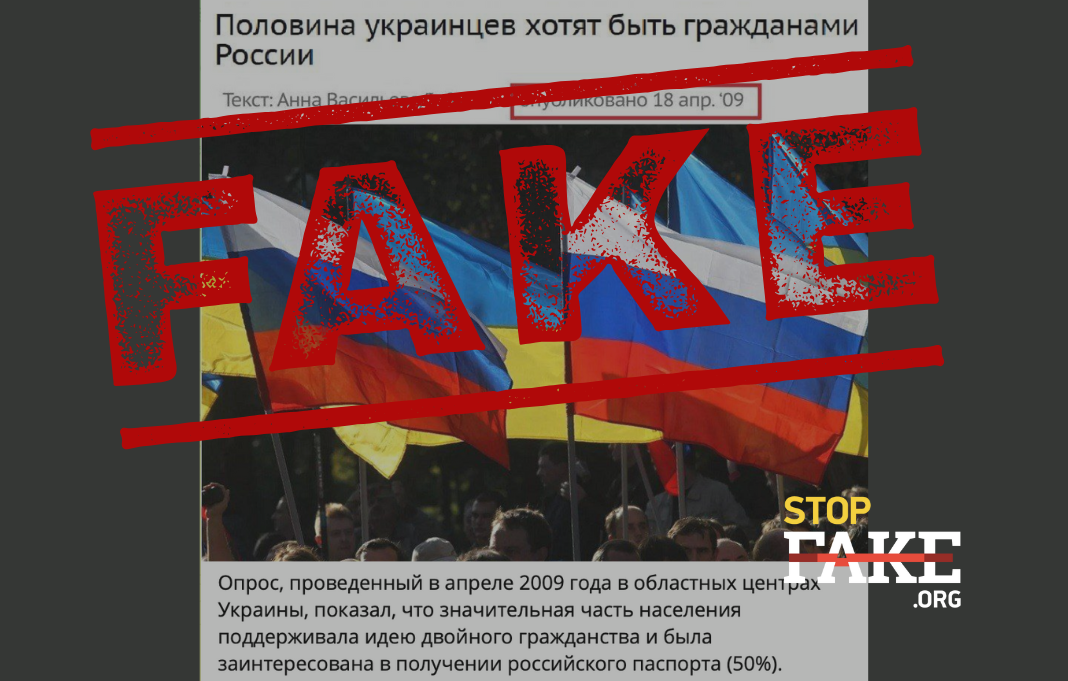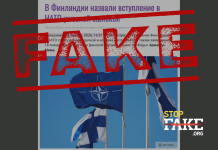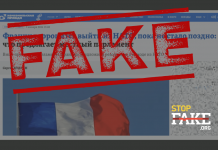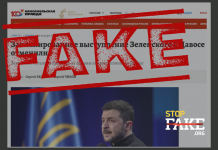In fact, no credible sociological survey conducted in Ukraine in 2009 indicated that a majority of Ukrainians wished to obtain Russian citizenship. The origin of this claim traces back to the CIS Countries Institute, a Moscow-based organization known for promoting Kremlin narratives and headed by Volodymyr Kornilov, a former Ukrainian political analyst who fled the country.
Russian media have circulated claims that a 2009 survey showed widespread support among Ukrainians for acquiring Russian citizenship.
“Since 1991, the Ukrainian population has gradually become indoctrinated with Bandera ideology, while Russia has done nothing,” writes Kremlin propaganda.
The claim originates from a so-called “sociological study” conducted by the Ukrainian branch of the CIS Countries Institute, led at the time by Volodymyr Kornilov. The institute is widely recognized as a Kremlin-backed organization created to disseminate pro-Russian narratives throughout the post-Soviet space.
In Ukraine, the CIS Countries Institute has come under repeated scrutiny by legal authorities. Its director, Konstantin Zatulin, has been declared persona non grata and expelled from the country multiple times. Ukraine’s Security Service (SBU) has accused the institute of anti-Ukrainian activities, including efforts to destabilize the country internally, promote separatism, and deny the Holodomor. The SBU has also petitioned the courts to terminate the organization’s operations in Ukraine.
Volodymyr Kornilov, the originator of the claim, is a Russian propagandist with documented ties to the Kremlin and an active role in disinformation campaigns targeting Ukraine. Following the 2014 Revolution of Dignity, he fled the country and became a regular commentator on Russian state television, where he has defended the annexation of Crimea, justified the war in Donbas, and amplified false narratives about Ukraine.
The purported survey conducted by Kornilov’s organization falls far short of accepted standards for sociological research. It lacks methodological transparency, fails to provide a representative sample, and appears to be driven by political motives rather than empirical rigor.
By contrast, data from reputable Ukrainian research institutions—such as the Kyiv International Institute of Sociology (KIIS)—paint a very different picture:
• In 2009, most Ukrainians identified primarily as citizens of Ukraine, supported national independence, and did not express a widespread desire to change their citizenship.
• Public support for closer ties with Russia had been gradually declining and never reached majority levels, even in traditionally pro-Russian regions such as the south and east.
• At no point has credible data indicated a mass movement among Ukrainians to acquire Russian citizenship.
The claim that “most Ukrainians wanted to become Russian citizens in 2008–2009” is demonstrably false and originates from disinformation. It aligns with a long-running Kremlin propaganda campaign aimed at eroding Ukrainian statehood and perpetuating the narrative of a “one people.”
StopFake and other fact-checking organizations have previously debunked similar narratives suggesting that Ukrainians are “actually Russians” or are gravitating toward Russia due to alleged governance failures in Kyiv.





